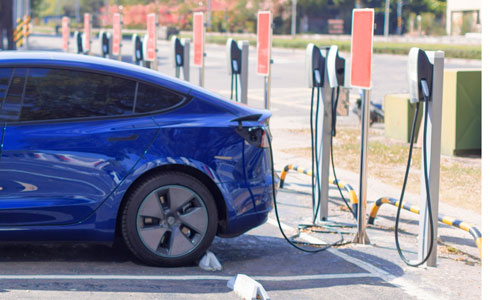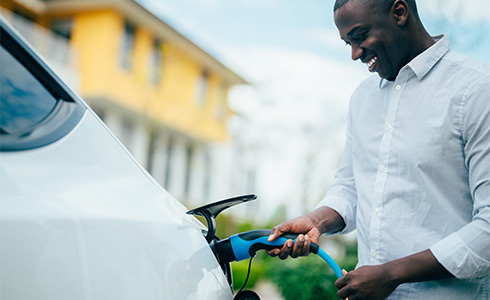How can we help you?




Select your Dominion Energy service location to view information relevant to your region.
Are you a natural gas customer in North Carolina, Ohio or Utah? Visit Enbridge Gas.
Start your EV charging journey with confidence, contact Dominion Energy’s Certified Team for expert support and a hassle-free experience.

Dominion Energy will finance, install and maintain your charging station, with seamless on-bill payments. You set the pricing and retain all charging revenue.

Looking to install Level 3 charging? Check to see if DCFC infrastructure is available in your area.

See Frequently Asked Questions or contact the eTransportation team.
EV operation can be 3 to 5 times cheaper than gasoline and diesel-powered cars. All-electric models do not use oil; thus they do not need oil changes.
Many EV models qualify for a federal income tax credit of up to $7,500. Learn more about available tax credits.
EVs do not require gasoline and can be charged at home with a standard 120v outlet or a 240v level 2 charger can be installed for faster charging.
While range varies by model, the average EV in the US has a range of more than 250 miles.
Most EV drivers prefer to charge at home. With Level 2 chargers adding about 30-45 miles per charging hour, waking up to a full charge each morning is a significant advantage of EVs. For long trips, it's easy to stop and fully recharge in about 30 minutes while you take a rest and grab a snack.
EVs have no tailpipe emissions. While the power plant producing your electricity may produce emissions, electricity from hydroelectric, solar, nuclear, or wind-powered plants is generally emission-free.

 Skip to Content
Skip to Content

